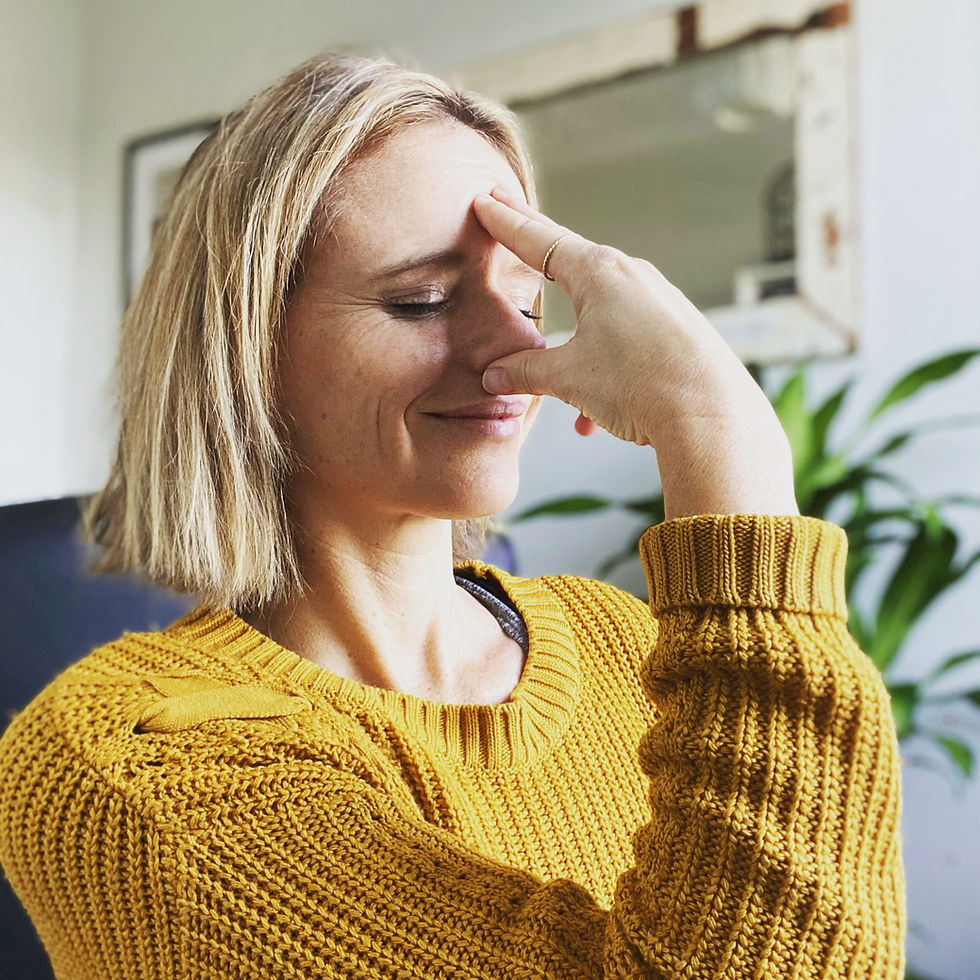Compassion: it starts with the self
- Candice Habershon
- Jun 13, 2020
- 3 min read
Compassion is so much more than just a kind reaction to someone else’s suffering. It is also an essential skill, one that can be practiced and improved upon. When you learn compassion, you can begin to transform your life and increase your own happiness.
In Buddhism philosophy, karuna is the second of the four brahmaviharas (sublime attitudes) – friendliness, compassion, gladness and equanimity. And in the yoga sutras Patanjali also asks talking about cultivating karuna.
The practice of karuna asks us to open to pain without guarding our hearts. To dare to touch our deepest wounds – and the wounds of others - as if they are our own. When we stop pushing away our own humanity, in all of its darkness and glory, we become more able to embrace other people with compassion. An important lesson for our times.
And important for biological reasons. When we help someone out of genuine concern for their wellbeing, not from some other self-serving motivation, our levels of endorphins surge in the brain. It is what doctors call the “helper’s high.”
The warm fuzzies that we get from being compassionate releases oxytocin – the same hormone breastfeeding mothers get. Oxytocin, which men get too, helps us to bond with others, increases empathy, positive communication and reduces inflammation in the cardiovascular system – which is important for heart health.
So basically, if you help others from a place of genuine concern for them, you will feel good and be healthier!

The first step to developing compassion is to look after yourself. It’s all too easy to put self-care on the back burner, especially at the moment when life has got so incredibly busy. The pandemic has meant for many of us that we have less time and more responsibilities. Add in some poor self-esteem (“I’ve got so fat during lockdown.” “I’m working every hour possible and getting nowhere”) and you might start to believe you don’t deserve self-compassion.
But you do!
A lot of us feel strongly but don’t know where or how to channel these feelings. Use your yoga practice to tap into your emotions and see what stuff arises for you. Awareness is key for compassion for others too. Often, when people are going through something horrible they don’t want your sympathy or for you to rush in and try to “solve” their problem. They just want you to hear them, to see them.
Our asana practice helps us study and transform the way we relate to pain or fear. Do we respond to our weaknesses and limitations with tenderness or with judgement and impatience? Do we pull away from painful sensations out of fear (or laziness)? Are we suckers for punishment? Can we learn to soften into the hard poses even when our muscles are on fire?
A great pose for this self-exploration is pigeon pose because it helps to unearth tightness and resistance. Staying in uncomfortable poses forces you to be aware of your body and be proud of your courage to stick with it. Later, when you’re out in the real world and faced with a difficult situation, you can draw on your experiences on your mat – even subconsciously - and have the resilience to handle it.
I have been through trauma in my life and had some very dark days. I’ve known some suffering and it shook my belief system to my very core. Yoga has been a lifeline for me. I have found solace and healing in the movement and the breath, and of course in the philosophies.
This is what drew me to teaching yoga because I passionately believe in its transformational powers and I wanted to share it with others. Yoga awakens empathy and compassion in us. It’s not about handstands and splits – although if you can do those (I can’t) that’s cool! It’s not even about the chanting and the meditation. It’s about what it teaches us about ourselves.
Going through my own personal trauma has helped me to put a lot of things into my life into perspective. It has taught me boundaries and shown me how strong I can be. I've developed resilience and an ability to let things go - all things reflected in my yoga practice. But the main thing it taught me was to be compassionate. To see other people’s suffering and to feel it mirrored inside my own heart.
We may sometimes wish our lives could be free of pain, injuries, stress, aging. But if you didn’t go through those things, you wouldn’t feel compassion for others. You’d be completely oblivious and your heart would never awaken. Who would want to lead a closed up life like that?




Love reading your blog posts, beautifully written as always. A great reminder to ramp up our self-care, the ripple effects benefit everyone!